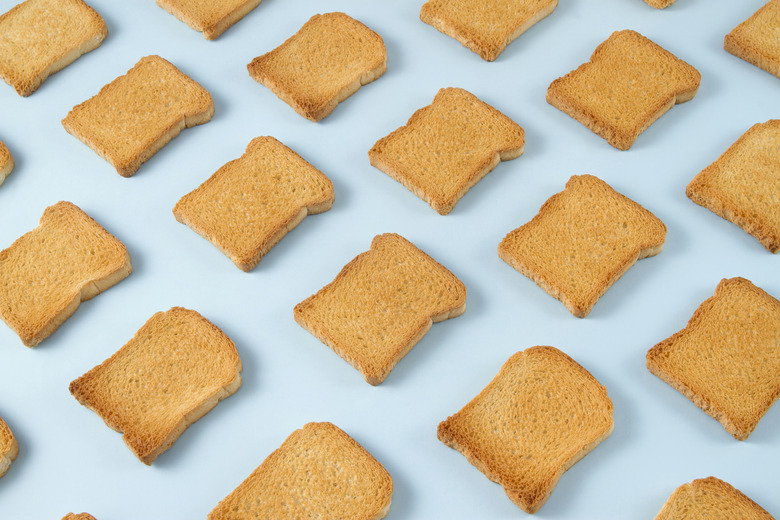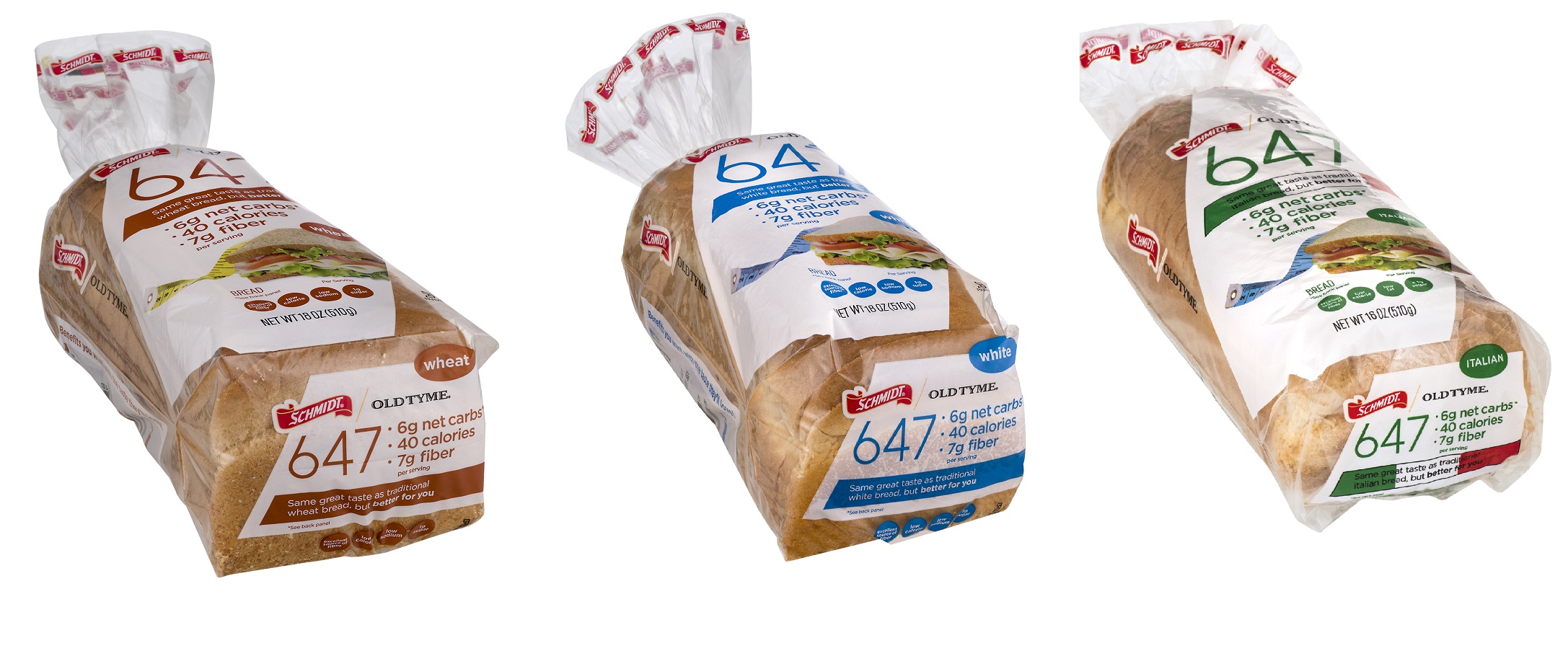Low-Calorie Bread Is Too Good To Be True
Reduced- and low-calorie breads are having a moment — almost as big of a moment as low-calorie ice cream. The food industry has been working hard to transform all of your favorite, crave-worthy foods (bread, ice cream, cookies, chocolate, etc.) into low-calorie, everyday indulgences.
Protein cookies are a thing now. Stevia-sweetened chocolate sits among sugary chocolate bars on the shelf. Every time you visit the store, there's a new low-calorie ice cream brand in the freezer aisle. And now, there's low-calorie, high-fiber bread.
It seems too good to be true. The bread has anywhere from 40 to 50 calories, depending on the brand, while still offering nearly a third of your daily recommended fiber. These breads are low in sugar and high in volume — no need for fewer slices or smaller sandwiches.
"The New Jersey Weight Watchers ladies are going bonkers for this bread!" one woman told The Daily Meal. She was referring to Schmidt brand 647 bread — named for its 6 grams of carbs, 40 calories, and 7 grams of fiber.
It's a dieters dream. More bread in your calorie count, more volume stuffed in your restricted food bubble. It's the fantasy of eating an entire pint of low-calorie ice cream, guilt-free! Only now, it's carbs.
But here's the thing: Nothing about eating these foods feels indulgent. And the nutritional value of these foods is almost as depleted as their calorie counts are.
"Oftentimes, low-calorie alternatives to 'everyday foods' such as breads, pastas, potatoes, and rice, are simply not as satisfying as the real thing and leave us wanting more," explained registered dietitian Lindsay Sparks to The Daily Meal. "We can often feel deprived and end up seeking other foods to fill the void of what we really wanted."
Plus, low-carb bread might not be healthier for you at all. 647 bread, for example, has managed to supply a good dose of fiber, but is missing out on the other vitamins and minerals usually in a slice of whole wheat. The levels of folate, magnesium, potassium, and vitamin B have all been depleted. You're cutting carbs, but you're cutting a bunch of other good stuff, too.
Cutting carbs is also not the healthy solution you think.
"We need a balance of all the macronutrients (carbohydrates, proteins, and fats) to help our bodies perform their best and to meet our vitamin and mineral needs," Sparks explained. Carbohydrates are an important part of that equation. If you cut the carbs from your bread, you might find yourself craving carbohydrate-dense foods later on to make up for the deficit — like sugar, potato chips, mac and cheese... You get the picture.
"One slice of (real) bread had the same amount of carbohydrates in it as the berries you eat for breakfast," Sparks said. "So next time you wrap your sandwich fillings in a lettuce leaf or a mediocre low-calorie bread, ask yourself a few questions: Can I do this the rest of my life? Do I truly find this satisfying?"
Cutting carbs and calories doesn't work, Sparks explains. These bread companies want you to believe cutting carbs is "healthy" — but really, it's not.

